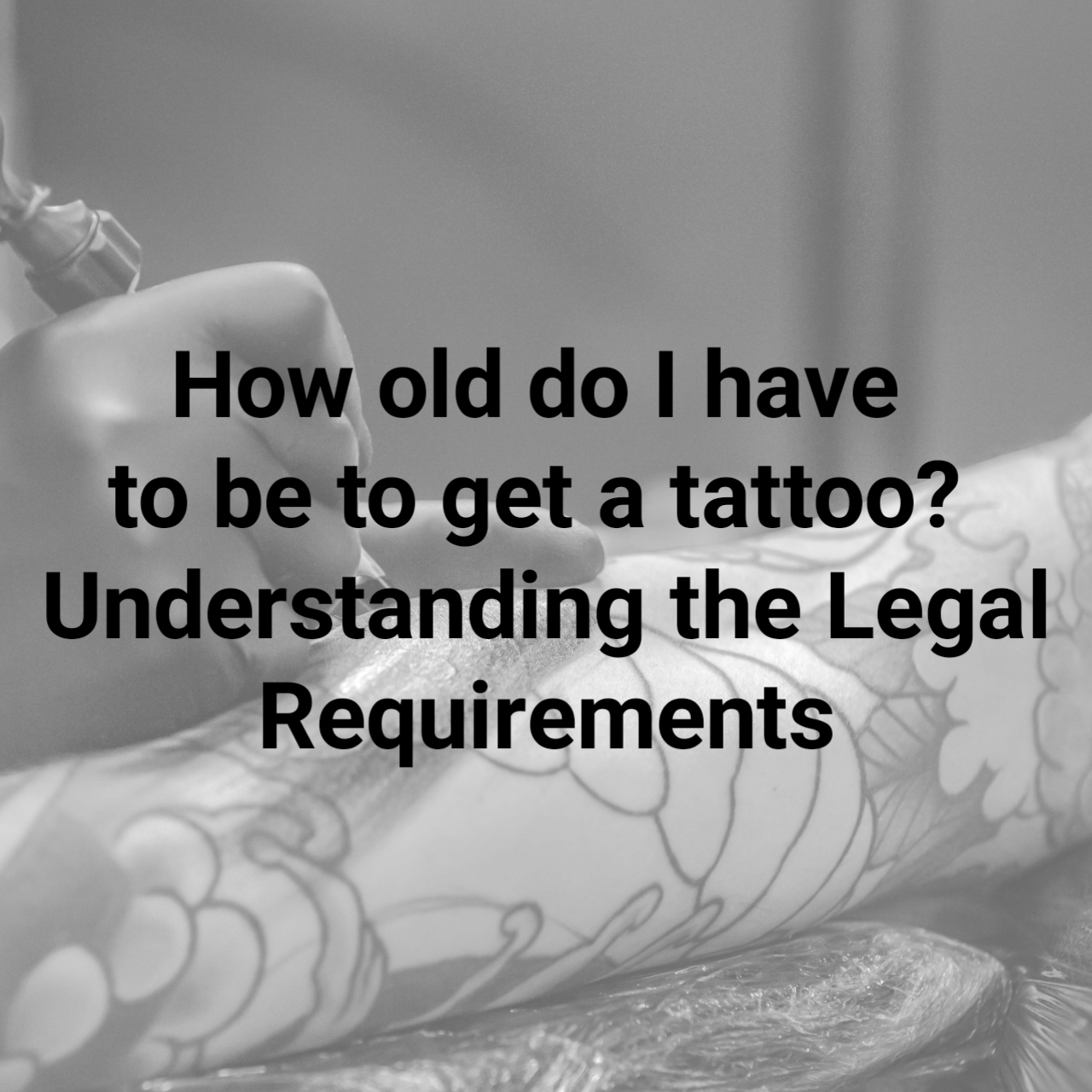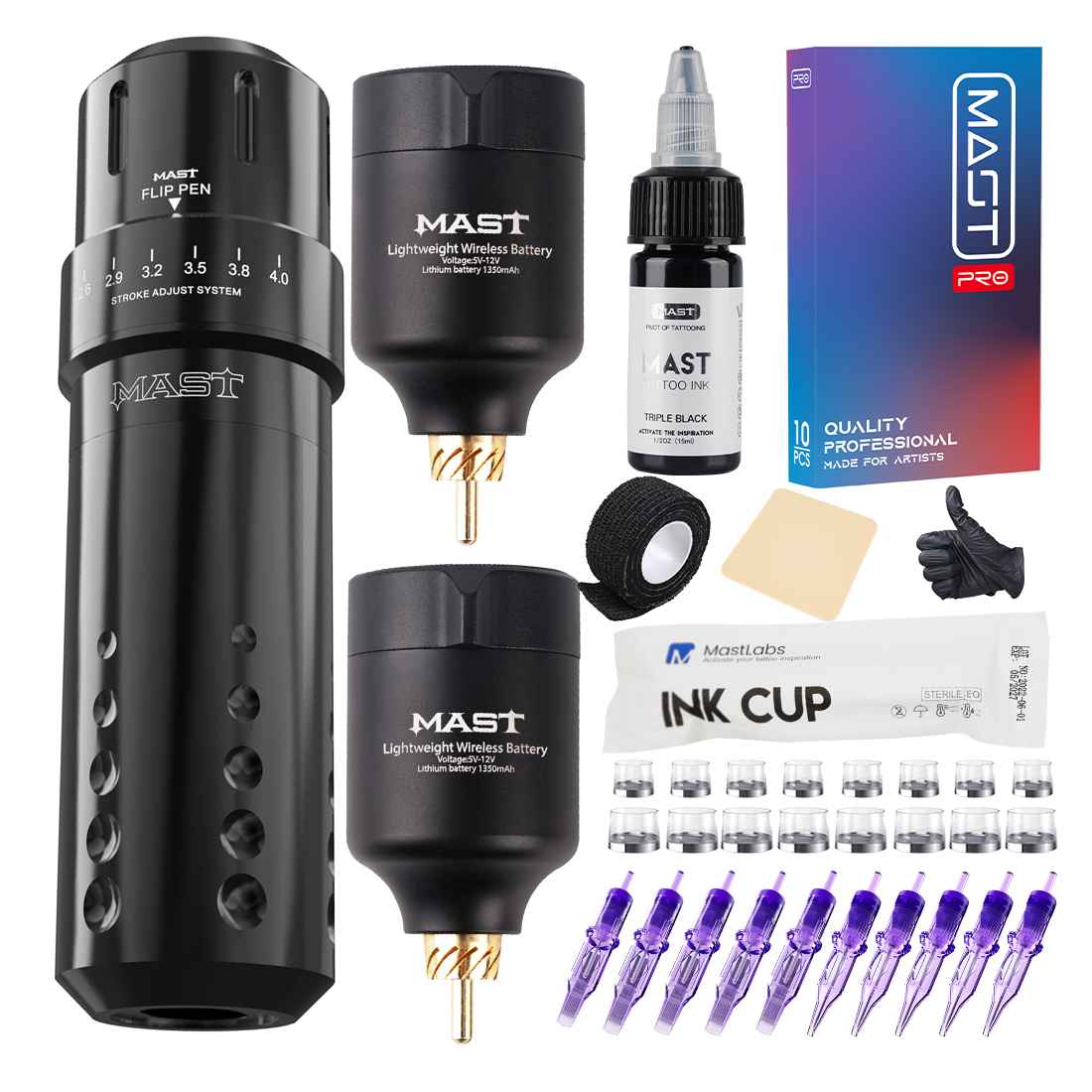Tattoos have become increasingly popular in recent years, with more and more people getting inked as a form of self-expression or art.
However, while getting a tattoo can be an exciting and meaningful experience, it’s important to consider the legal requirements surrounding it, particularly when it comes to age restrictions.
Straight up on “how old do I have to be to get a tattoo”: Age requirements for getting a tattoo can vary greatly depending on your location.
In some countries, the minimum age for getting a tattoo is as young as 16, while in others, it may be as high as 21.
In most countries, getting a tattoo under a certain age is considered illegal, and it’s essential to know the minimum age requirement in your location.
This requirement can vary from country to country, state to state, or province to province, and understanding it is crucial to avoid any legal repercussions.
Additionally, while many people view tattoos as a form of art, they are also a form of body modification that carries some risks, especially when done at a young age.
These risks can include allergic reactions, infections, and even scarring, making it essential to consider the potential health risks before getting a tattoo.
In this article, we’ll explore the legal requirements and age restrictions for getting a tattoo, including any additional regulations based on age, size, or placement.
By the end of this article, you’ll have a better understanding of the legal requirements surrounding tattoos and the age restrictions that apply.
Whether you’re considering getting a tattoo yourself or simply curious about the process, this article will provide valuable information to help you make an informed decision.
What is the Minimum Age Requirement for Getting a Tattoo
Let’s take a closer look at some examples of age requirements for getting a tattoo in different regions:
1. United States
In the US, the minimum age requirement for getting a tattoo varies from state to state. In most states, the minimum age is 18, while in others, it may be 16 with parental consent.
For example, in California, the minimum age is 18, but 16-year-olds can get a tattoo with parental consent. In Texas, the minimum age is 18, and there is no provision for parental consent.
2. United Kingdom
In the UK, the legal age for getting a tattoo is 18. Anyone under 18 is prohibited from getting a tattoo, even with parental consent.
3. Australia
In Australia, the minimum age for getting a tattoo is 18 in most states. However, in some states like Victoria and New South Wales, 16-year-olds can get a tattoo with parental consent.
4. Canada
In Canada, the legal age for getting a tattoo is 18 in most provinces.
In Quebec, the minimum age is 16 with parental consent, while in British Columbia, the minimum age is 16, but only for tattoos that are not considered to be explicit.p
It’s important to note that there may be exceptions to these age requirements based on medical or religious reasons.
Additionally, some countries or states may have additional regulations regarding tattooing, such as size or placement restrictions.
Also Read: Can I be 14 to get a tattoo?
Tattoo Regulations by Age
Tattoo regulations can vary depending on age, and it’s important to be aware of any additional regulations that may apply before getting a tattoo.
These regulations exist to ensure a safe and legal tattooing experience for everyone involved.
Here are some examples of additional regulations that may apply based on age:
- Size and Placement Restrictions – Some locations may have size or placement restrictions for tattoos based on age. For example, minors may be prohibited from getting tattoos on their hands, neck, or face. These restrictions exist to ensure that minors are not making impulsive or regrettable decisions that may impact their future employment or relationships.
- Health Regulations – Tattooing carries some health risks, especially when done improperly. As a result, many locations have health regulations in place for tattoo parlors. These regulations may require sterilization equipment, clean working spaces, and licensed practitioners. Additionally, minors may need to provide proof of immunization or a doctor’s note before getting a tattoo.
- Consent Requirements – For minors, parental or guardian consent is often required to get a tattoo. The age at which consent is required can vary depending on the location, but it’s important to understand the laws surrounding parental consent before getting a tattoo. In some cases, parental consent may need to be provided in person, and the parent or guardian may need to provide identification.
- Design Restrictions – While tattoos are a form of self-expression, some designs may be considered inappropriate or offensive. In some locations, it’s illegal to tattoo certain designs, such as hate symbols or gang-related imagery. Additionally, tattoo artists may refuse to tattoo designs that they consider to be morally or ethically objectionable.
Also Read: Is it okay to have a tattoo at 16?
Parental Consent Laws for Tattoos
In many locations, parental or guardian consent is required for minors to get a tattoo.
This is to ensure that minors are not making impulsive or regrettable decisions that may impact their future.
Consent laws can vary depending on the location and the age of the minor. In some places, parents may need to provide written consent, while in other places they may need to provide in-person consent.
1. Obtaining Parental Consent
If you are a minor looking to get a tattoo, it’s important to talk to your parents or guardians about your decision.
You may need to provide them with information on the tattoo parlor and the artist, as well as the design you are interested in.
If your parents or guardians are supportive of your decision, they may need to provide written or in-person consent depending on the laws in your location.
2. Required Documentation
In some locations, additional documentation may be required to obtain parental consent for a tattoo.
This can include a birth certificate or government-issued identification for both the minor and the parent or guardian.
It’s important to research the specific requirements in your location to ensure that you have all necessary documentation.
By understanding the age restrictions and parental consent laws in your location, you can ensure a safe and legal tattooing experience as a minor.
It’s important to do your research and consult with a professional tattoo artist or legal expert to ensure that you are in compliance with all regulations in your area.
By following these laws and regulations, you can enjoy a beautiful and meaningful tattoo without any legal or health risks.
Also Read: Is 17 a good age to get a tattoo?
Tattoo Policies by Age Group
Tattoo policies can differ depending on age group, with regulations often being stricter for minors and young adults. Here are some key points to consider:
- Minors – In many locations, minors are not permitted to get tattoos without parental or guardian consent. Some locations may require the parent or guardian to be present during the tattooing process. Additionally, some locations may have specific regulations on the size or placement of tattoos for minors.
- Young Adults – Young adults, typically those between 18 and 21 years old, may face additional regulations when it comes to getting a tattoo. Some locations may require young adults to provide identification proving their age, and they may also be subject to specific regulations on the size or placement of tattoos.
- Health Concerns – There are potential health risks associated with getting a tattoo at a young age, especially if proper care is not taken during the healing process. Younger skin may be more prone to scarring, and a lack of proper aftercare can increase the risk of infection. Additionally, young people may be more likely to make impulsive tattoo decisions that they may later regret.
Also Read: Will my tattoo stretch if I get it at 18?
Risks involved in getting a tattoo for a minor
Getting a tattoo at any age comes with some risks, but there are particular concerns associated with getting a tattoo at minors. Here are some potential risks to consider:
1. Health Risks
A minor’s skin is still developing and may be more sensitive than that of an older person. Improper tattooing techniques or a lack of proper aftercare can lead to scarring, infection, or other health complications.
2. Future Implications
A tattoo is a permanent decision, and getting one at a young age can have future implications.
As a minor, a person may not fully understand the implications of getting a tattoo and may not consider how it will impact their future.
For example, a tattoo that may seem cool or meaningful at 14 may not have the same significance later in life.
3. Legal Implications
Depending on the location, it may be illegal for a minor to get a tattoo without parental consent.
Even with parental consent, there may be specific regulations on the size or placement of tattoos for minors.
4. Social Implications
Unfortunately, there is still a stigma associated with tattoos in some social settings.
A minor who gets a tattoo may face criticism or judgment from peers, family members, or even future employers.
5. Mental Health Implications
Finally, getting a tattoo at a young age may have mental health implications.
A young person who gets a tattoo on a whim or without fully considering the long-term implications may regret the decision later.
This can lead to feelings of anxiety, depression, or low self-esteem.
Also Read: Pros and cons of getting a tattoo at 16
6. Emotional Immaturity
A minor may not have the emotional maturity to handle the pain or discomfort associated with getting a tattoo.
They may also not be equipped to handle any negative reactions or feedback they receive from others.
7. Changing Interests
As a minor, interests and preferences are likely to change rapidly. What may seem like a good idea for a tattoo now may not be meaningful or relevant in a few years.
8. Allergic Reactions
A minor may be more likely to have an allergic reaction to the tattoo ink, as their immune system may not be fully developed.
9. Permanent Scarring
As a minor’s skin is still developing, it may be more prone to scarring. Improper tattooing techniques or aftercare can lead to permanent scarring.
10. Risk of Infection
If proper hygiene practices are not followed during the tattooing process, there is a risk of infection.
A minor may not be as knowledgeable about these practices or may not have the confidence to speak up if they feel something is not right.
Also Read: Can you get a tattoo at 15?
Conclusion
In this article, I’ve given the answer to the question, “How old do I have to be to get a tattoo?”
Getting a tattoo is a personal decision that should be made with careful consideration and understanding of the legal requirements and age restrictions.
It’s important to research and understand the laws and regulations surrounding tattoos in your local area to ensure that you are following the appropriate guidelines.
Additionally, it’s crucial to consult with a professional tattoo artist or legal expert if necessary to ensure that you are making informed decisions.
By understanding the age requirements and legal regulations surrounding tattoos, individuals can make responsible decisions about body art and express themselves creatively in a safe and legal manner.






